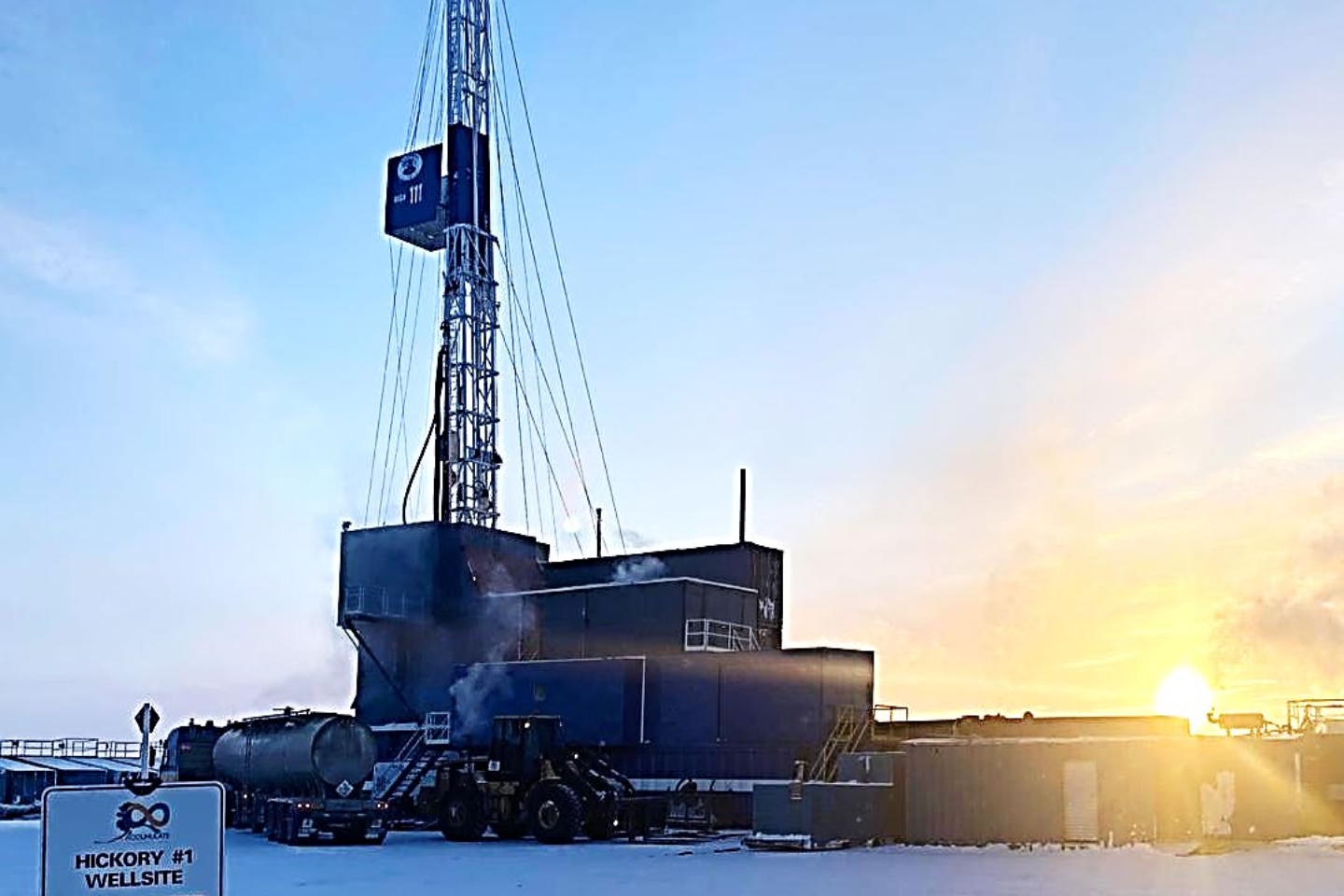Oil explorer 88 Energy has officially kicked off operations at its Hickory-1 well in Alaska, with bore preparations complete ahead of perforation and flow-testing, which is expected to be completed this month. Management says that data will provide the crucial first steps on the path to development for its greater Phoenix project that sits on the onshore oil section of Alaska’s north slope.


Oil explorer 88 Energy has officially kicked off operations at its Hickory-1 well in Alaska, with bore preparations complete ahead of perforation and flow-testing, which is expected to be completed this month.
Management says that data will provide the crucial first steps on the path to development for its greater Phoenix project that sits on the onshore oil section of Alaska’s north slope near the Trans Alaska oil pipeline.
Two flow tests are scheduled for the Upper Slope Fan System (SFS) reservoir and the shallower shelf margin deltaic-B (SMD-B) reservoir, which together represent a solid prospective oil resource.
Starting with the Upper SFS area, both reservoirs will be independently isolated, stimulated and flowed to surface using nitrogen lift to assist in the efficient clean-up of the well. The entire program for each zone is expected to take about 10 days, but the company says it may choose to adjust the schedule during the flow-back program to ensure optimal data collection.
Management says it has also strengthened its technical advisory team to include further engineering expertise, in addition to having experienced members of the Pantheon Resources team available to share their knowledge. Drilling and flow-testing by Pantheon last year at its Kodiak project, adjacent to the Phoenix operation, returned encouraging results for the lower basin floor fan reservoir.
An independent quotation of the best-technical estimate of contingent resource (2C) cited 314.6 million stock tank barrels of oil (MMstb) of oil, 647.9 MMstb of natural gas liquids (NGL) and 4465.2 billion cubic feet (BCF) of residual gas for the comparable reservoir at Kodiak, which has been mapped into the Phoenix project area.
Significantly, Pantheon says the NGLs on its Alaskan projects are of material value as they can be blended with the oil. The combined stream of oil, condensate and NGLs has been estimated by Pantheon to yield about 90 per cent of the value of the Alaska North price per barrel.
The Phoenix project has been owned by 88 Energy since 2015 and the drilling of Hickory-1 last year validated the presence of multiple hydrocarbon-bearing zones across all six pre-drill targets, in addition to identifying the Upper SFS reservoir as a bonus.
The company previously released its volumetric estimates for the reservoir intervals prior to the drilling of Hickory-1, quoting a gross, unrisked 2U/P50 resource estimate of 134 MMstb for the slope fan system and 224 MMstb for the shelf margin delta reservoirs. The volumes equate to a 2U/P50 net resource to 88 Energy of 84MMstb and 140MMstb, respectively.
During drilling, the Upper SFS reservoir provided significantly elevated mud-gas readings at about 15 times more than background, visual porosity in cuttings and immediate hydrocarbon shows following the application of solvent to cuttings – suggesting good permeability.
Drilling observations in the shallower SMD-B zone were also suggestive of hydrocarbon presence. The company says drill cuttings at that level showed fluorescence under ultraviolet light, an indicator of hydrocarbon presence, and also showed elevated mud-gas readings.
Is your ASX-listed company doing something interesting? Contact: matt.birney@businessnews.com.au













